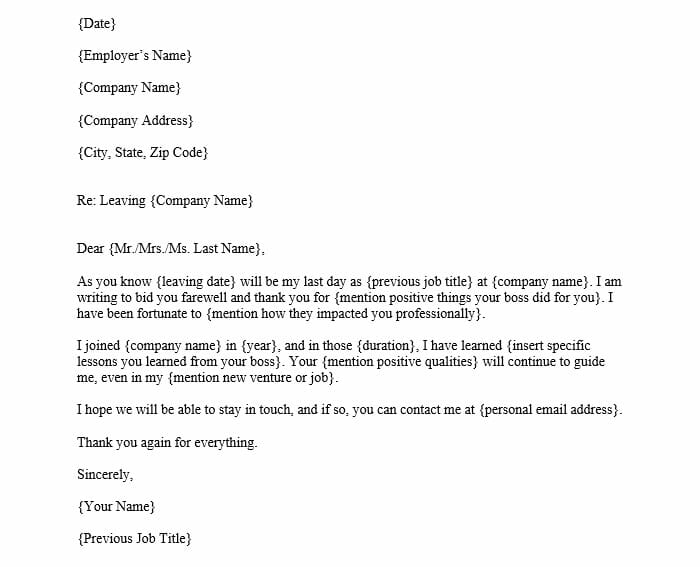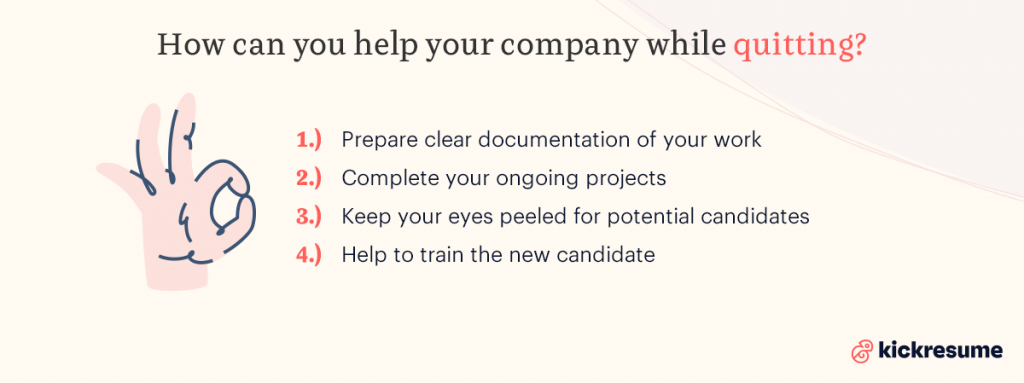How To Tell Your Boss You're Leaving Your Job

The moment of resignation is a pivotal point in any career, laden with potential anxieties and uncertainties. Navigating this transition gracefully and professionally is crucial for maintaining positive relationships and securing future opportunities. Leaving a job, regardless of the circumstances, demands careful consideration and strategic communication.
At its core, informing your employer of your departure necessitates a delicate balance between fulfilling professional obligations and protecting your own interests. This article aims to provide a comprehensive guide on how to effectively communicate your resignation, ensuring a smooth transition for both you and your employer. It will cover everything from timing and delivery to documentation and follow-up.
Timing is Everything
Deciding when to inform your boss is as important as how. Most employment contracts and common professional courtesy dictate a minimum notice period, typically two weeks. Check your contract and local labor laws to ensure you are compliant, advises the Society for Human Resource Management (SHRM).
Consider your company's project cycles and upcoming deadlines. Aim to give notice at a time that minimizes disruption to ongoing projects. A well-timed resignation allows for a smoother handover and demonstrates your commitment to a professional exit.
Preparing for the Conversation
Before scheduling a meeting, solidify your decision and prepare your resignation letter. This document serves as the official record of your departure and should include your last day of employment. Keep the tone professional and avoid negativity or venting frustrations.
Practice what you want to say. Rehearse the conversation, anticipating potential questions and preparing thoughtful responses. This preparation will help you remain calm and collected during what can be a stressful interaction.
The Conversation Itself
Request a private meeting with your direct supervisor. Do not resign via email or text message unless explicitly instructed or if you work remotely and an in-person meeting is impossible. The face-to-face conversation shows respect for your supervisor and the company.
Be direct and to the point. Begin by stating clearly that you are resigning from your position. Follow up with your reason for leaving, keeping it concise and professional. Avoid overly detailed explanations or criticisms.
Express gratitude for the opportunities you've had at the company. Acknowledge the skills you've gained and the positive experiences you've enjoyed. This positive framing helps maintain a good relationship even as you depart.
"It's always best to frame your departure in a positive light, focusing on the growth you're seeking in your next role rather than dwelling on perceived negatives in your current one," advises Jane Smith, a career counselor at Career Transitions, Inc.
Handling the Aftermath
Offer your assistance with the transition process. Volunteer to train your replacement or document your key responsibilities. This demonstrates your commitment to a smooth handover and reinforces your professionalism.
Be prepared for your supervisor's reaction. They may be surprised, disappointed, or even angry. Remain calm and professional, regardless of their response. Stick to your prepared talking points and avoid getting drawn into emotional arguments.
Follow up with a formal resignation letter. Submit this letter to your supervisor and HR department as soon as possible after your verbal resignation. Ensure you have a copy for your own records.
Documentation and Follow-Up
Maintain thorough documentation throughout the process. Keep copies of your resignation letter, any performance reviews, and any communication related to your departure. This documentation can be helpful in resolving any potential disputes that may arise.
Request a written confirmation of your last day of employment and any benefits information. Understand your rights regarding accrued vacation time, severance pay, and continuation of health insurance. Consult with HR or legal counsel if you have any questions or concerns.
Maintain professionalism until your very last day. Continue to perform your duties to the best of your ability and maintain a positive attitude. Leave a lasting impression of competence and dedication.
Consider requesting a letter of recommendation. If you have a good relationship with your supervisor, ask if they would be willing to write you a letter of recommendation. This can be a valuable asset in your future job search.
The Future of Work and Resignations
The landscape of employment is constantly evolving. Today's workers are more likely to change jobs multiple times throughout their careers. As a result, understanding how to resign gracefully and professionally is more important than ever.
Building and maintaining a strong professional network is crucial. Leave your job on good terms and maintain contact with your former colleagues. You never know when you might cross paths again in the future.
Ultimately, resigning from a job is a significant decision. By approaching it with careful planning, open communication, and unwavering professionalism, you can ensure a smooth transition and protect your career reputation. Leaving a job well is just as important as starting one.




:max_bytes(150000):strip_icc()/how-to-tell-your-boss-you-re-quitting-your-job-2063035_FINAL-5b88037cc9e77c002cc6f46c.png)
:max_bytes(150000):strip_icc()/2060865a-a00dd037c25547df8a83c13bb57cd695.jpg)












